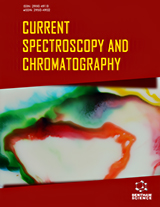Abstract
Background: A Book Review on Nanotechnology: Food and environmental paradigm, is edited by Ram Prasad, Vivek Kumar and Manoj Kumar, Springer Nature Singapore, 2017, 340 Pages, ISBN 978-981-10-4677-3, DOI 10.1007/978-981-10-4678-0.
This book aims to study the effects of nanomaterials on the environment and food and emphasizes the advantages gained through the application of nanotechnology in the broader area of food and environment.
Methods: Food web is the core of ecological balance for a sustainable environment. The presence of undesired nanomaterials in the food chain or web causes unwanted toxicity to the plants and animals of the food chain. In majority cases, the presence of nanomaterials in food web causes toxicity, impairment of organs and/ or heavy loss to one or more population. Thus, it is highly required to limit the release of nanomaterials in the environment. It is also necessary to set the norms for the production, use and discard of nanomaterials.
Results: This book consists of 16 chapters, which all together address a large dimension on the positive and negative effects of nanomaterials and the application of nanotechnology in various fields of food, agriculture and pharmaceutical industry. It is also important to evaluate the cost before implementing any new technology. It is not necessary that good research which performed well in the laboratory must also do well on the industrial scale. A major barrier which can be encountered is actually the cost, which must be less to be implemented.
Conclusion: Application of desired nanomaterials is advantageous for many industries and quality life. Nano-fertilizers and nanopesticides enhance crop production. Nanotechnology plays a significant role in the food industry, from production, processing to packaging. Diagnostics is a field where nanotechnology is applied too much. New diagnostic methods using nanosensors, nanochips and nanocatalysts are evolving day by day.
Keywords: Crop protection, environmental issues, food industry, innovation, nanotechnology, nutrient management.
Graphical Abstract
[http://dx.doi.org/10.1897/08-117.1] [PMID: 19086209]
[http://dx.doi.org/10.1016/j.foodres.2009.03.019]
[http://dx.doi.org/10.1155/2015/365672] [PMID: 26613082]





























